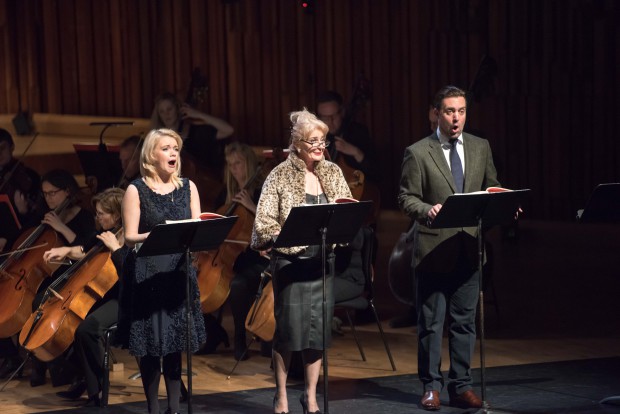Adelson e Salvini
Barbican
First operas by composers who later became great or anyway expert in writing them tend to be at best of biographical interest, to be revived mainly for people who are interested to hear premonitions of the achievements that lay ahead. Up to a point that is the case with Bellini’s Adelson e Salvini, which he wrote in his early twenties, and which at the time was a big local success, being performed every Sunday for a year. Performances since bel canto operas came back into fashion have been extremely rare, and the company Opera Rara’s name has never been more appropriate than when it gave a brilliant account of the opera at the Barbican last week, with a superb cast and the BBC Symphony Orchestra conducted with immense vigour by Daniele Rustioni, who expressively crouched out of view of the players, leant negligently in profile with his armpit resting on the safety rail, implored the singers to give their all with beseeching gestures, and took off several times to get Act III under way.
My impression was that most of the packed audience felt, as I did, surprised by the high quality of the music, while I hope they remained as bewildered by the plot as I was. The setting is Ireland, with a macaronic cast including Nelly, Fanny, Salvini, Colonel Struley, and Bonifacio. The Wikipedia website of the opera is invaluable, explaining part of the plot as follows: ‘Struley ago set fire to a casino in the bottom of the castle grounds that, at the sight of the flames, all accorrano the disaster site and his men to kidnap Nelly.’ I found I was happy living from number to number, though surprised that they were separated by spoken dialogue (originally recitativo secco).
The influence of Rossini is clear and abundant, but there are several passages and even whole arias where Bellini’s own wonderful vein of yearning and melancholy, much loved by composers as disparate as Chopin and Wagner, is in evidence, with Nelly’s Act I aria taken over intact for Giulietta in I Capuleti e i Montecchi. Daniela Barcellona gave a wonderful account of it, which will be appearing on disc early next year. Salvini, the chief tenor role, was ardently sung and semi-acted by Enea Scala, a remarkable tenor and winning personality. The whole cast, though, was excellent and justified the revival; a less consistently fine one wouldn’t.






Comments